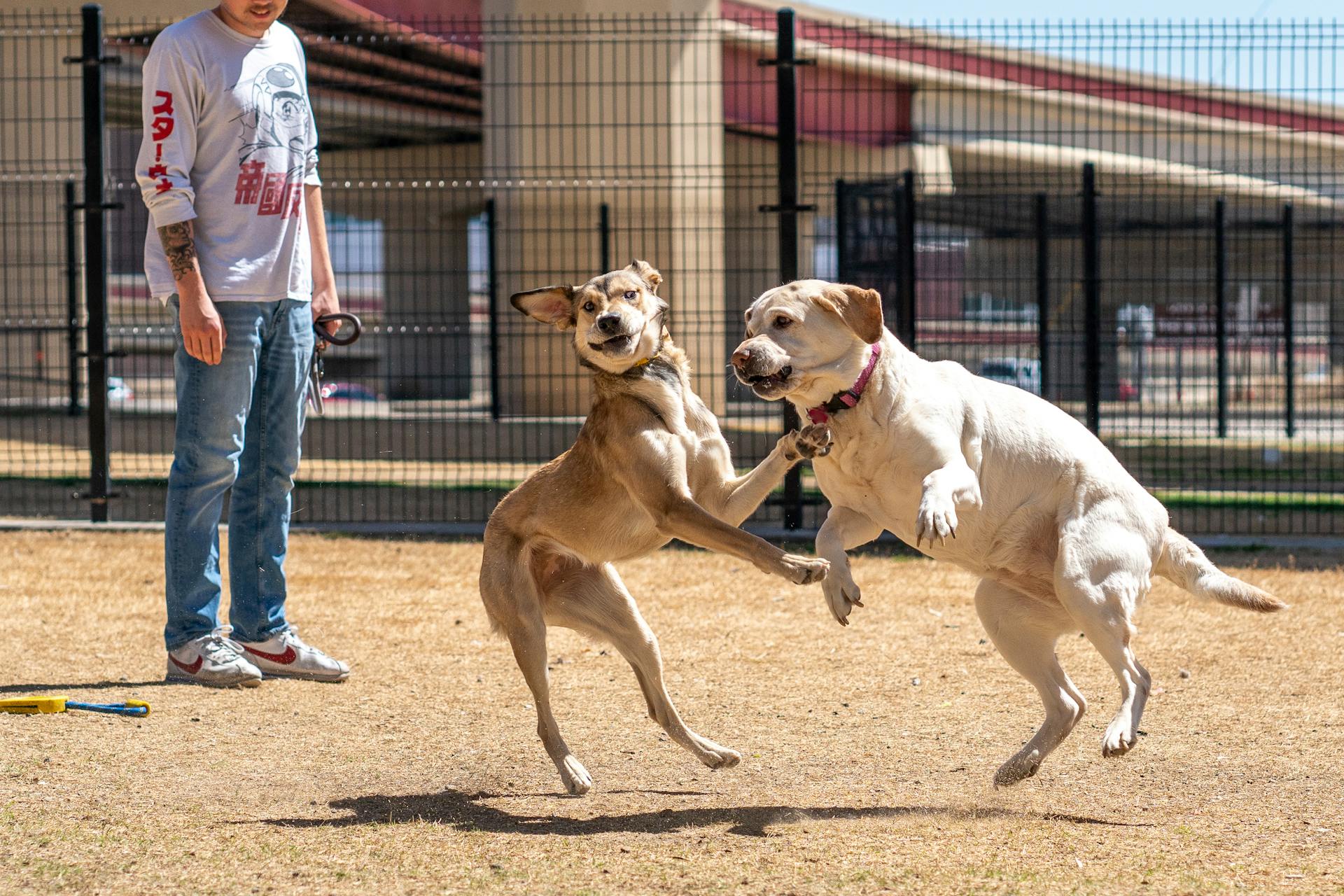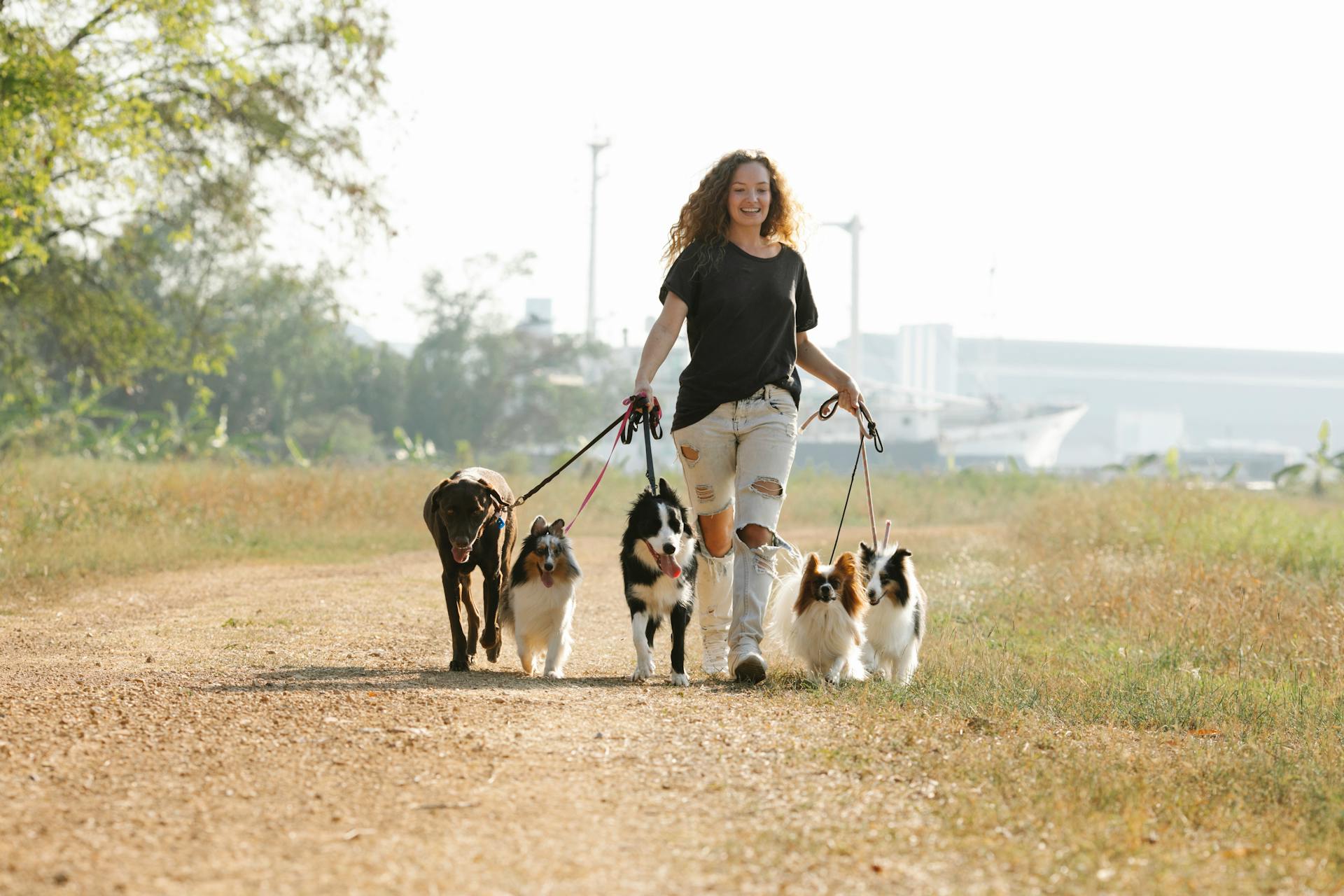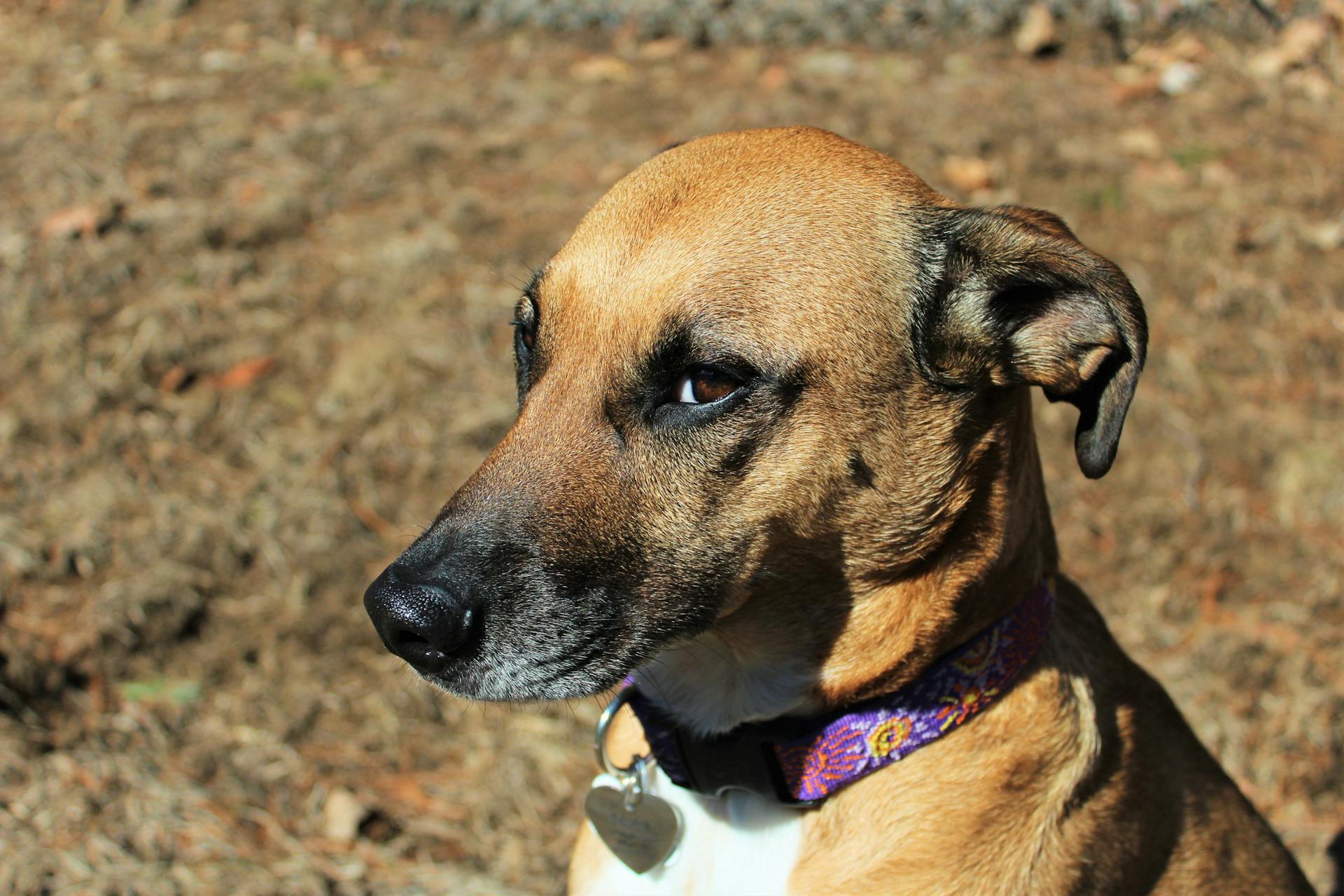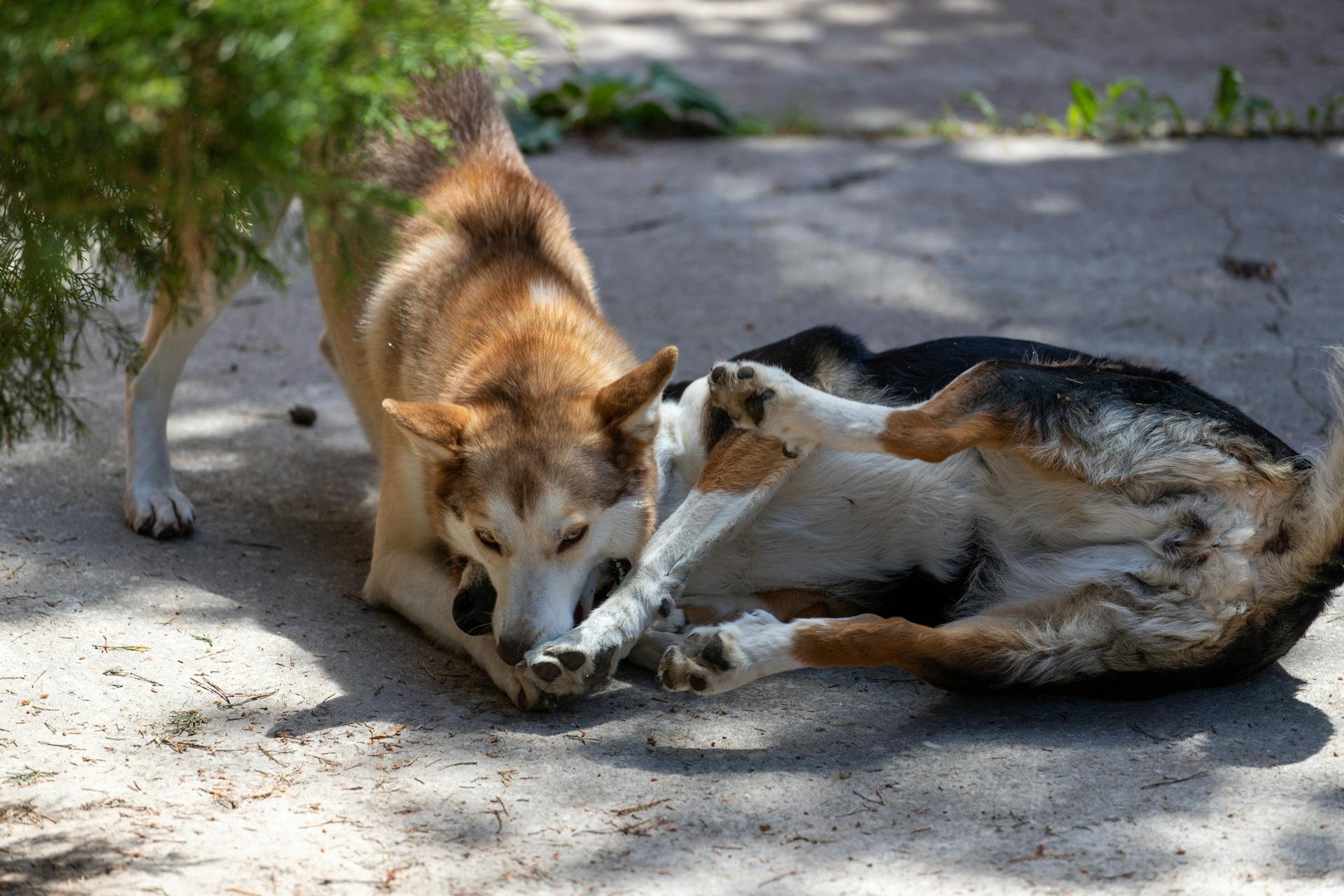
If your dog isn't eating but is acting normal, it's essential to take action. A loss of appetite in dogs can be a sign of an underlying medical issue.
Dogs often stop eating due to dental problems, which can cause pain and discomfort while eating. In some cases, dental issues can lead to infections that require immediate veterinary attention.
A decrease in appetite can also be a sign of gastrointestinal issues, such as inflammatory bowel disease or gastrointestinal foreign bodies. These conditions can cause abdominal pain and vomiting.
In some cases, a lack of appetite can be a sign of a more serious underlying condition, such as kidney disease or liver disease.
Causes and Treatment of Anorexia
If your dog stops eating for a day or two but is otherwise active and alert, it's okay to keep a close eye on them initially. You could offer them some bland home-cooked food like boiled chicken and rice, which is a tasty but easily digestible diet.
Some underlying causes of anorexia in dogs include serious illnesses. Treatment will very much depend on what the underlying cause is.
If your dog is quiet, not themselves, or displaying other symptoms like vomiting, diarrhea, weakness, or lethargy, or has not eaten at all for 2 days, you should seek veterinary attention. Your vet may give an injection or tablet to stimulate their appetite.
To get your dog back up and about again, finding and treating the underlying cause is the best way to approach this situation. This may take a few days, and additional measures may be required.
In some cases, if it's going to be longer than a couple of days while your pet heals, or the treatment takes effect, your vet may suggest placing a feeding tube. This isn't permanent – it's just to keep them fed until they start eating by themselves.
You should be careful to avoid any toxic foods such as onions and garlic.
A fresh viewpoint: Can a Bug Bite Cause a Lump on a Dog
Dental Disease
Dental disease can cause your dog not to eat, often due to oral pain from decay, gingivitis, a broken tooth, abscess, or oral tumour.
Your vet will be able to check your dog's mouth during a clinical examination to assess for any problems.
If your dog has dental disease, it's essential to get them checked by a vet as soon as possible to prevent further complications.
If your vet finds any issues, they'll be able to provide guidance on how to proceed with your dog's care.
In the meantime, it's crucial to keep an eye on your dog's overall health and watch for any signs of illness.
Related reading: Doberman Pinscher Von Willebrand Disease
Understanding Lethargy and Loss of Appetite
Lethargy in dogs is a vague sign that can point to many different problems. Lethargy means sluggishness, drowsiness or dullness, and a dog who's lethargic may show no interest in activities they usually enjoy.
A lack of interest in going for a walk is a common sign of lethargy in dogs. Sometimes lethargy can be due to the weather, but it can also be the first sign that something's not quite right with your dog.
Dogs who are lethargic may not want to play or eat. Lethargy, weakness, and sudden tiredness are common signs of illness in dogs.
If your dog is lethargic and not eating, it's a good idea to consult with a veterinarian to rule out any underlying health issues.
A different take: How Common Is Pyometra in Dogs
Getting Your Dog to Eat
If your dog won't eat but is acting normal, it's essential to investigate the underlying cause. A decreased appetite in dogs can be a sign of illness, especially if your dog is exhibiting other symptoms.
Dental disease is another common reason why dogs might refuse to eat. Pain in the mouth can make mealtime uncomfortable for your dog.
Recent vaccination can also cause a temporary loss of appetite in dogs. Fortunately, these effects are usually minor and brief.
Travel and unfamiliar surroundings can also lead to a decrease in appetite. Some dogs may get motion sickness, while others become nervous or uncomfortable in new places.
Pickiness or behavior issues can also cause a refusal to eat. Some dogs are just picky, or their refusal to eat may be caused by feeding them in situations where they aren’t comfortable.
If your dog's loss of appetite is caused by illness, your vet may recommend a prescription diet or prescribe appetite-stimulating medications. In more severe cases, your vet may recommend syringe-feeding a liquid diet or inserting a feeding tube.
If your dog's decreased appetite is a behavior problem, there are several things you can try to encourage your pet to eat. These include cutting back on treats, feeding your pet on a regular schedule, making mealtime a fun time, and changing your dog's feeding situation.
Some owners have found success with feeding their dogs a raw food diet, which can be a great option for dogs that are picky eaters. However, if your dog is still refusing to eat, it's essential to consult with your vet to rule out any underlying health issues.
Here are some tempting options you can try to get your dog to eat:
- Canned sardines
- Green tripe
- Raw goat's milk
- Kefir
Remember, if your dog still won't eat after trying these options, it's always best to consult with your vet to ensure there are no underlying health issues.
Managing Routine Changes
Dogs thrive on a consistent routine, and any changes to it can lead to stress and affect their appetite.
A change in household dynamics, such as a new family member moving in, can be a significant disruption to a dog's routine.
Excitement and distractions can make mealtime a challenge for dogs, as they may prefer to greet the new person over eating their breakfast.
A consistent routine helps dogs feel secure and in control, which is essential for their emotional well-being.
A change in routine can result in a dog not eating or being slow to eat, as seen in the case of a dog who struggled to eat after a household member moved in.
Check this out: New Strain of Kennel Cough
Frequently Asked Questions
When should I worry about my dog not eating?
Seek medical help if your dog misses two or more meals, or if you notice a persistent change in their appetite along with concerning symptoms like vomiting or swelling. If you're unsure, it's always best to err on the side of caution and consult a veterinarian.
Why does my dog seem interested in food but won't eat?
Your dog may seem interested in food but won't eat due to a difficulty chewing or swallowing, a condition known as pseudo-anorexia. If your dog is otherwise active and alert, monitor their behavior closely for a few days to determine the cause
Sources
- https://vethelpdirect.com/vetblog/2020/09/13/when-should-i-worry-about-my-dog-not-eating/
- https://www.vets-now.com/pet-care-advice/dog-is-lethargic/
- http://www.eastvalleyemergencypetclinic.com/blog/93070-what-to-do-if-your-dog-is-lethargic-amp-not-eating
- https://www.webmd.com/pets/dogs/dog-not-eating-possible-causes-and-appetite-solutions
- https://keepthetailwagging.com/what-to-do-if-your-healthy-dog-wont-eat/
Featured Images: pexels.com


